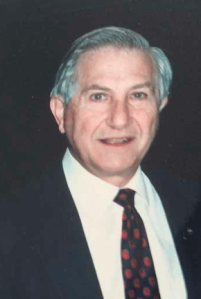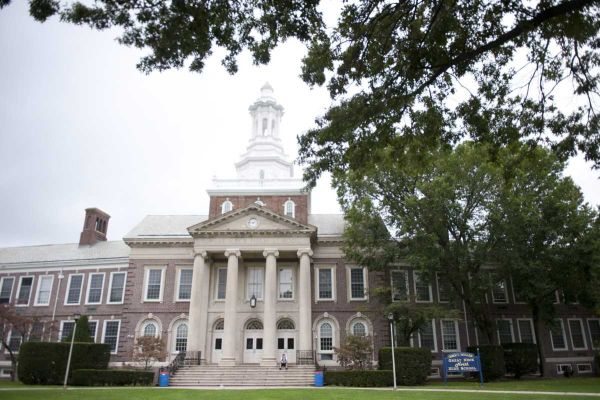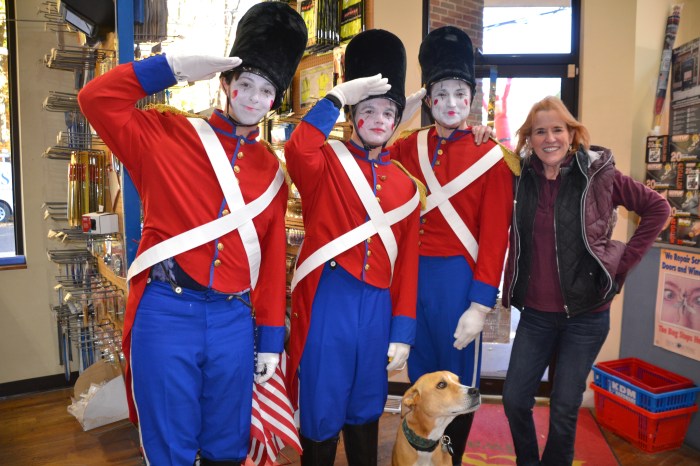
The mourners poured into Temple Beth-El’s chapel on Thursday, April 6, with umbrellas and rainwear after having braved the downpouring of the morning rain to gather to pay tribute to Milton “Mickey” Tamarin, who died two days earlier at age 92, on Tuesday, April 4. The fact that they had attended the funeral services in overflowing numbers was testimony indeed to how deeply they respected and admired Mickey, and for many good reasons. Mickey was a loving husband, a model father to his two sons, a World War II vet and a longtime resident committed to community service. What made Mickey so different, according to one mourner, was that his persona was unassuming and modest and his dedication to the community was a matter of plain, idealistic necessity and accomplished without fanfare.
Indeed, the service itself was short, probably the way Mickey would have preferred. No fuss, no long flowery speeches, just a brief eulogy “to celebrate the life of Milton,” given by Rabbi Meyer Feldman, to be followed later with prayers and the caring, meaningful remarks given by Mickey’s son Michael on behalf of his mother, Ruth, and brother, David.
Milton Tamarin was born in Brooklyn on April 23, 1924, as the youngest of three children to immigrant parents. A few months after high school graduation in 1942, he was drafted and assigned later to the 95th Infantry Division, 320th Engineering Battalion, a unit of General George Patton’s Third Army. He served with distinction abroad as part of the engineering communications unit, promoted to tech sergeant and engaged in supporting his division in fighting in Normandy through Belgium and into Germany. He and his battalion received a commendation (and a similar one from Major General W.H. Simpson) from General Patton “…for completing the assigned mission in connection with the reduction and capture of the strongly fortified town of Metz by the Third Army.”
After the war, Mickey received a degree in engineering from Brooklyn Polytech, worked for some 12 years for Republic Aviation in Lake Success, met and married Ruth, moved to Great Neck and joined the then-Prudential-Bache as a stockbroker. No surprise, after his retirement in the late 1990s, Mickey turned his attention to community causes. The long list included serving as president of the local Rotary Club, which honored him in 2012 for organizing food distribution to the underprivileged; aided in supporting Meals on Wheels; received a meritorious citation from the B’nai Brith chapter; was an ADL officer; and was involved in making the community aware of the beneficial uses of defibrillators.
Always a lover of music, for leisure Mickey returned after his retirement to one of his first loves, the clarinet, which he played as a youth and took root again (later he played the saxophone, too) as a member of the Band of Long Island.
The rain was still pouring after the funeral services and while the Army gave Mickey a military funeral at the cemetery, a gracious procedure given for vets. An honor guard flanked his coffin, placed it to rest in the plot as a bugler played “Taps.” Then Ruth received the American flag that had been draped ceremoniously over her husband’s casket. The sun came out later in the afternoon.





























